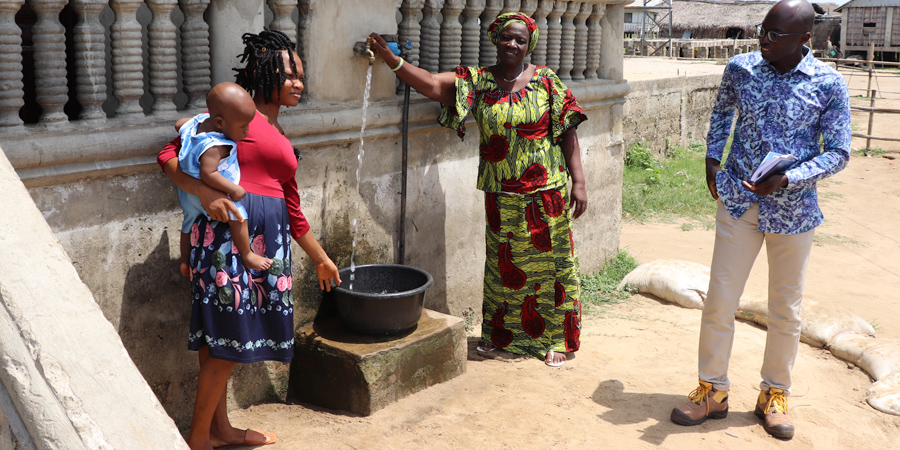The Board of Directors of the African Development Bank Group approved loans of almost USD 250 million to Rwanda in Abidjan on 1 December 2023, to improve the population’s access to water and sanitation services.
The Sustainable Water Supply and Sanitation Program for Transformation, currently in Phase I, will receive a loan of USD 199.5 million from the Bank, and another of USD 50 million from the Africa Growing Together Fund (AGTF), a joint-financing fund created by the African Development Bank and the People’s Bank of China. The Rwandan government will contribute USD 24.7 million towards funding the program. Implementation of the project is scheduled to last five years, from January 2024 to December 2029.
The program aims to improve the population’s access to water supply and sanitation services and strengthen the management of water resources and the operational performance of water and sanitation service providers in the target areas. It will increase the Rwandan population’s resilience to climate change.
The program’s four components provide for investments in water supply, as well as managing drainage basins, other investments in sanitation and program management, and support for the sector. The project will support the management of a program framework that will help investment planning.
Phase 1 of the program is focused on infrastructure refurbishment at the Nzove water treatment plant and the construction of water supply networks for Nyaruguru-Huye-Gisagara, Mwange, Muhazi, Mugesera and Kivu Belt.
The project will support the management of a program framework that will help investment planning
The refurbishment of the Nzove 1 water treatment plant, built in 2008, will return water production to its nominal capacity of 40,000 cubic metres per day, compared with 13,000 currently, supplying drinking water to an additional 227,000 people.
The construction of a water supply network for Nyaruguru-Huye-Gisagara, with water drawn from the River Akanyaru in Nyaruguru district, will supply drinking water to the secondary city of Huye and the districts of Nyaruguru and Gisagara, to satisfy the current demand for water of 30,316 cubic metres per day, which is set to reach 37,544 cubic metres per day by 2050, and serve 1,248,902 people.
The program will also contribute to reducing the shortage of wastewater infrastructure, offering households more opportunities to access improved sanitation services thanks to the city-wide inclusive sanitation approach. Investments will focus primarily on the construction of inclusive and climate-resilient sanitary facilities in public schools, markets and health centres (around 80 latrines or public and community sanitary facilities will be built) and on the creation of sanitation promotion centres and on-site treatment in public sanitary facilities.
Several projects in the water sector in Rwanda receive support from the African Development Bank, including the Sustainable and Resilient Water and Sanitation Program, the Sustainable Water Supply and Sanitation Program, the Muvumba Multipurpose Water Resources Development Program and the Kigali Water Supply Project in the country’s capital.
The main expected outcomes include increased raw water storage and treatment capacity, improved sanitation services and sustainable raw water resources for water supply systems.
The program is aligned with the Bank’s Country Strategy Paper for Rwanda (2022-2026) and its Ten-Year Strategy, as well as the “High 5” priority areas, especially “Improve the Quality of Life for the People of Africa”.
